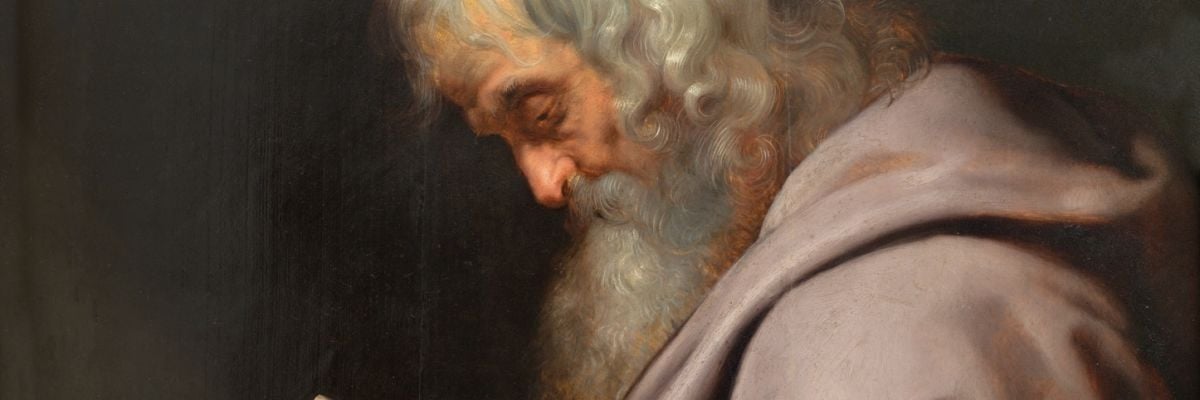
DAY 52
CHALLENGE
“If we’re not supposed to determine our religious beliefs by Scripture alone, name some apostolic Traditions that aren’t in the New Testament.”
DEFENSE
Which examples one will find persuasive depends on one’s theological viewpoint, but there are some that should be convincing to all traditional Protestants.
One is that there are to be no more apostles. The college of apostles did not continue past the first century. The task of shepherding the Church devolved from the apostles upon their successors, the bishops, but the two offices are not identical (CCC 860–62).
The cessation of the apostles did not have to be. Although membership in the Twelve required being an eyewitness of Jesus’ ministry (Acts 1:21–26), there were other apostles, such as Barnabas and Paul (Acts 14:14). Paul, in particular, wasn’t an eyewitness; Jesus only appeared to him later (Acts 9:1–9; cf. 1 Cor. 9:1). The fact that Jesus did this for Paul means he could have continued appearing and making new apostles down through history, but he didn’t. Some individuals in history have claimed to be new apostles, but orthodox Christians have rightly rejected their claims.
Related to the passing of the apostles is the fact that public revelation has ceased (CCC 66), and thus the canon of Scripture is closed. There are to be no more books of Scripture. This also did not have to be. God could have continued to inspire authors, enabling them to write new books of the Bible. The authors wouldn’t even have to be apostles, for some of the original New Testament authors (e.g., Mark and Luke) were not apostles.
Yet Christians recognized that just as the apostles ceased, so did the writing of Scripture. Of course, individuals have claimed to receive new books of Scripture (e.g., Joseph Smith), but, again, orthodox Christians have rightly rejected these claims.
The closing of the age of the apostles and the age of Scripture are elements of the deposit of faith, or apostolic Tradition, but they are not attested in Scripture. The Bible nowhere says or implies that Jesus will not continue to appear to people and create new apostles. Neither does it say or imply that God will not continue to inspire authors to write new books of Scripture. These are thus elements of apostolic Tradition not in Scripture.



